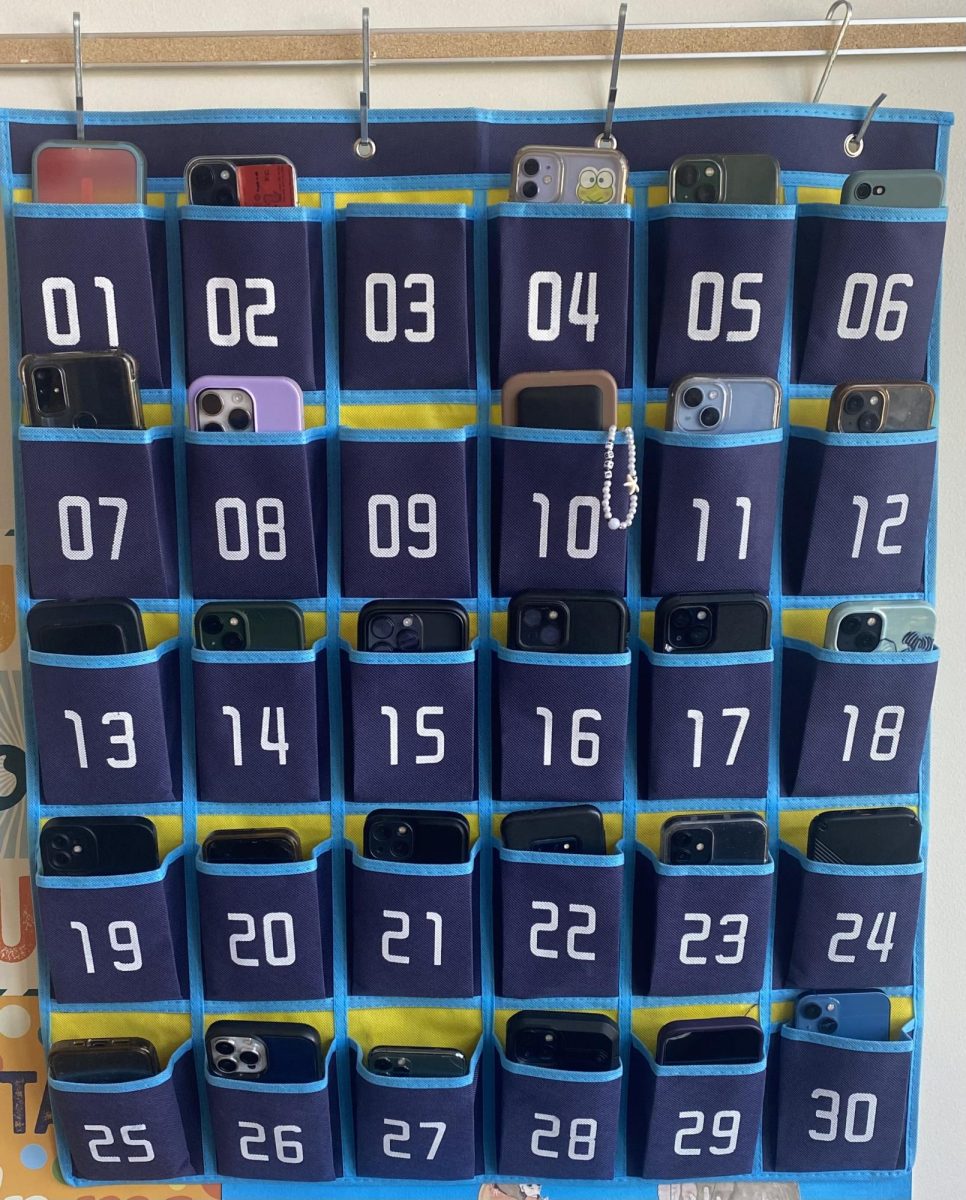Dear Editors of the Southerner,
The New Yorker magazine cover art is known for the satirical light it shines on American society, and Chris Ware’s recent cartoon certainly continues the tradition. Family and friends remain at the Thanksgiving table after consuming their feast, all of them engrossed by the images on their cell phones. No one speaks to or makes eye contact with another human being. The criticism of American society is clear and applicable to any situation where people gather.
An image of my family’s Thanksgiving meal could not be more antithetical to Ware’s cartoon. Whether we are gathered in the kitchen during meal preparation or seated around the dining table, my family engages in lively conversation that feeds our souls, strengthens our bonds, and fosters our growth as humans. Fellowship, not food, is always my favorite part of the Thanksgiving holiday.
Likewise, as an educator, discussion has always been my favorite part of teaching–and it is what I miss most. The pandemic severely restricted our ability to engage in the meaningful exchange of ideas that has the most profound impact on learning; but, even though students and teachers physically returned to the classroom several years ago, at most high schools, learning-focused conversation did not. There are certainly a myriad of factors that have contributed to the decline of discussion and the deep learning that accompanies it, but the chief culprit is students’ dependence upon their smartphones.
If the dining table and chairs in The New Yorker cartoon were replaced with desks, the image could be a snapshot of many classrooms across the United States, particularly here at Midtown. As a teacher new to the school, I continue to be shocked by students’ behavior as it pertains to their phones. Coming from a school that had a clear and consistent policy about phone use in the classroom (students were not allowed to use phones or have them out during class), I was completely unprepared for how much a lack of such a policy would impact my role as a teacher. During the first weeks of this year, I spent significant class time reminding students that their phones should be “out of sight.” Those students who did not completely ignore me responded by placing their phones in their pockets or under their legs. At the first vibration, the phones were back out.
In my continued attempts to get students to engage actively during class, I have had to spend more class time and be increasingly specific, insisting that “out of sight” meant that phones should be in students’ bags before finally assigning each student a number for the pocket they place their phone in at the beginning of class. Seventy-five percent of my students have responded well and are able to focus on their work during class, but for a quarter, the farther their phones are physically away from them, the more negatively they react and the more resistant and combative they become. My observations align with the findings of Dr. Jennifer Katzenstein, the Director of Psychology, Neuropsychology, and Social Work at Johns Hopkins All Children’s Hospital, who asserts that a significant minority of cell phone users exhibit behaviors akin to addiction, including “changes in mood,” “anger or irritability,” “loss of control,” and “difficulty concentrating,” in reaction to not having their phones in their possession.
The impact of students’ dependence on their phones extends beyond lack of focus and behavior problems at school to their mental health. According to the Center for Disease Control’s biennial Youth Risk Behavior Survey, 42% of high school students reported feeling “sad or hopeless for two or more weeks in a row to the point that they stopped doing some usual activities” in 2021. This staggering number, coupled with a report from The New York Times that over 55 research studies have shown a strong correlation between teens’ cell phone use and mental health problems, anxiety in particular, makes it clear that schools must take action.
American high schools that have already instituted school-wide policies restricting or banning cell phone use during instruction have experienced positive results in terms of students’ well-being and academic performance as well as in school culture. Schools in Colorado, Florida, and Pennsylvania have reported fewer discipline problems, including bullying and fighting, and increases in positive student interactions and engagement in class activities. Superintendent Bill Wilson affirms that stress among students in Colorado’s Brush School District has dropped as cellphones are no longer “omnipresent during school hours.” At Midtown High School, we need to establish our own school-wide cell phone policy. We must act together as administrators, teachers, support staff, students, and parents of the Midtown community to improve academic focus and bolster emotional well-being. Only then will the classrooms of Midtown High be filled with meaningful conversations that lead to deep learning.








